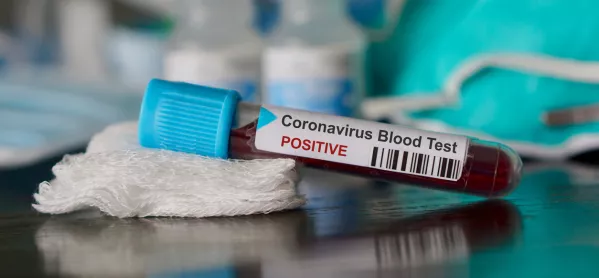Schools are being advised to isolate staff or pupils with suspected coronavirus cases in offices or meeting rooms, as part of new government guidance to curb the spread of the virus.
There is “no need” for schools to close if a teacher or pupil is showing symptoms of the virus, but there are a number of steps staff can take to prevent the spread of infection, the government has said.
New advice for education settings issued by Public Health England (PHE) states that, until the outcome of test results is known, there is “no action that staff members need to take” in respect of those who may have come into contact with the suspected case.
Related: At least seven schools affected by coronavirus
Outbreak: UK teachers fleeing coronavirus must work all night
International news: ‘Coronavirus has closed our school for a month’
However, if a case is confirmed, teachers and other staff members are advised to take a number of steps to reduce the risk of further infection.
The government has issued the following advice for schools:
- Encourage good hygiene. All pupils and staff members should wash their hands regularly (using soap and water or alcohol sanitiser); cover coughs or sneezes with a tissue; avoid touching their eyes, nose and mouth with unwashed hands; avoid close contact with people who are unwell; and clean and disinfect frequently touched objects and surfaces.
- Tell people to stay at home if they feel unwell. Those exhibiting viral symptoms should not attend work or any educational or childcare setting.
- Make sure pupils know to tell a member of staff if they feel unwell.
- Tell any pupil or staff member who has returned from the Hubei province, including Wuhan, in the past 14 days to self-isolate. People who have returned from China, Hong Kong, Japan, Macau, Malaysia, Republic of Korea, Singapore, Taiwan or Thailand in the past 14 days are advised to stay at home if they develop symptoms.
- Call NHS 111 if a pupil or staff member becomes unwell and believes they have been exposed to coronavirus (either through travel to China and other affected countries or contact with a confirmed case). Call 999 if they are seriously ill or their life is at risk.
- Isolate suspected cases behind a shut door, such as a staff office or meeting room, while waiting for advice. If it is possible to open a window, do so for ventilation. The room will need to be cleaned once they leave. If they need to go to the bathroom while waiting for medical assistance, they should use a separate bathroom if available.
- Advise suspected cases to avoid touching people, surfaces and objects and cover their mouth and nose with a tissue when they cough or sneeze, and put the tissue in the bin. If no bin is available, tell them to put the tissue in a bag or pocket for disposing in a bin later. If there are no tissues available, they should cough and sneeze into the crook of their elbow.
- If the case is confirmed, follow PHE advice. The local health protection team will provide advice and will work with the school’s leadership team.
- Clean all surfaces with which the suspected case came into contact, using disposable cloths and household detergents. These include all surfaces and objects that are visibly contaminated with body fluid, and all potentially contaminated high-contact areas such as toilets, door handles and telephones.
- Dispose of all waste that has been in contact with the suspected case, including used tissues, and masks if used. These should be put in a plastic rubbish bag and tied when full. The plastic bag should then be placed in a second bin bag and tied. It should be put in a safe place and marked for storage until the result is available. If the case tests negative, this can be put in the normal waste.





